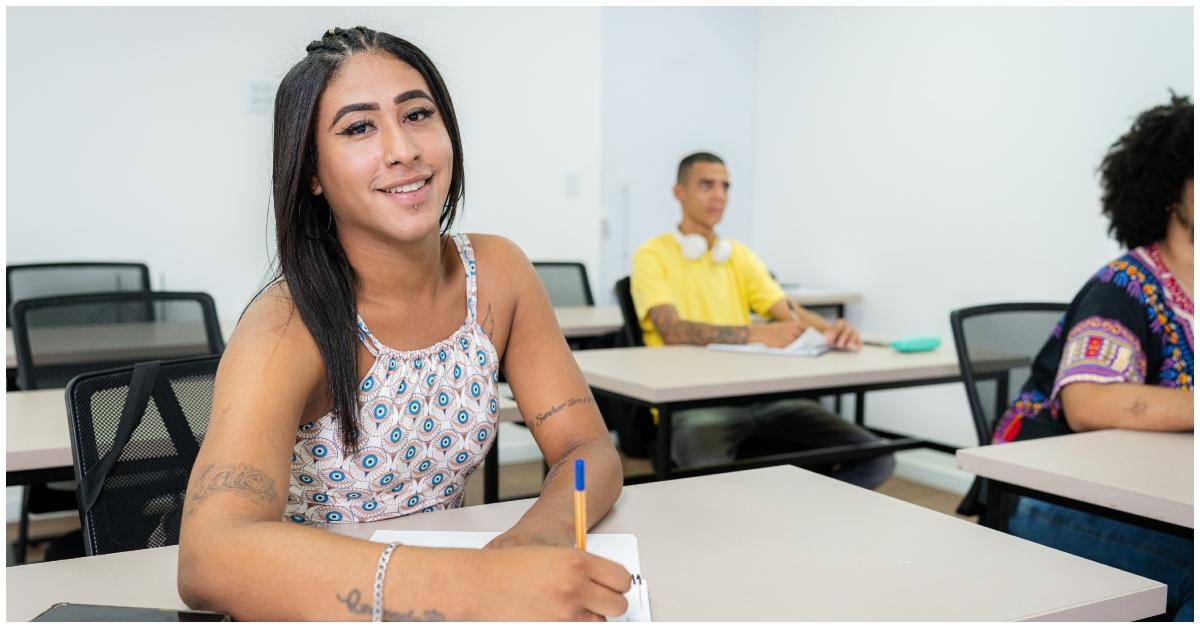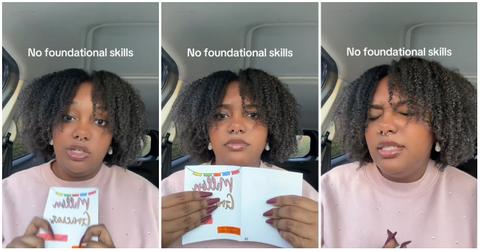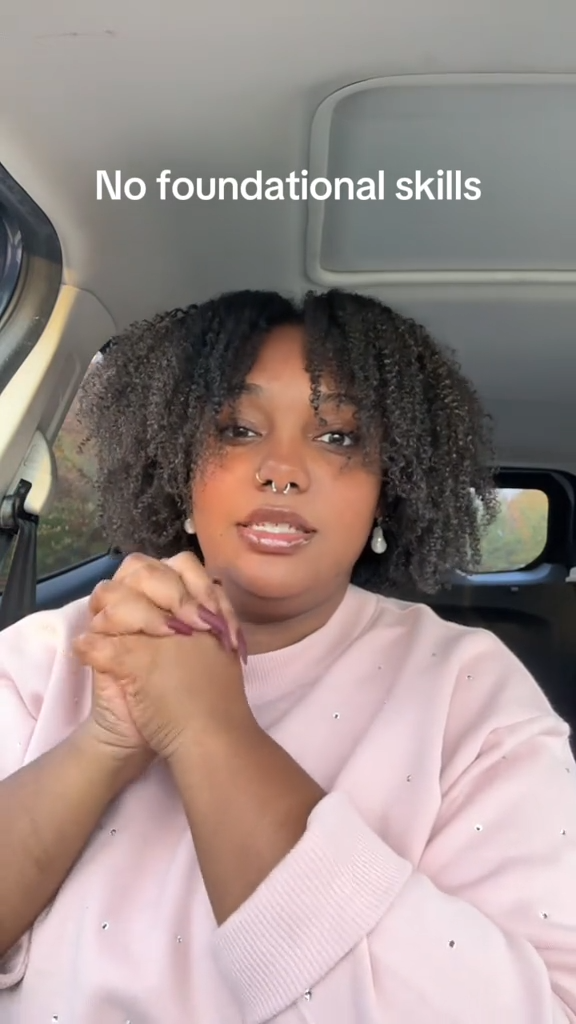High School Teacher Says Students Don’t Know How to Fold Paper “Hamburger Style”
Updated Nov. 28 2023, 1:58 p.m. ET
The late great Whitney Houston once sang to the world, “I believe the children are our future; teach them well and let them lead the way.”
She believed that, no matter how much the generations changed, the children coming up during and after her Grammy-winning song’s reign would be around to make the world a better place.
In November 2023, one teacher debunked Whitney’s belief. While attempting a creative activity with her students, the teacher discovered today’s kids have no idea how to do basic arts and crafts.

A teacher says Gen Z and Gen A students aren’t allowed to be creative in school.
I don’t like to Gen Z or Gen Alpha shame, so I will say Whitney was right in some regard. The children growing up in 2023 are changing how their “elders” think and challenging societal beliefs that many were previously sticking to. However, despite their willingness to disrupt past generations’ way of living, the recent generation of kids lacks many basic educational principles.
Those with kids or kids in their lives know many of them can’t read or write in cursive (nor do they know what "cursive" means), they don’t love going outdoors, and iPads and other electronic devices are their BFFs, and they can’t imagine a world where an entire family took turns roaming the internet on one computer. But after an impromptu assignment with her students, TikTok user Dee (@mamma_dee) uncovered how much the kids really don’t know.
Dee is a high Spanish school teacher and often discusses the significant differences between her past student experience and theirs. During one of her TikToks, she explained how, due to the impending Thanksgiving 2023 break, she had yet to learn what to teach the students in her class in the days leading up to the break.
Dee thought having her students create “thank you” cards in Spanish for the other teachers would be fun to kill time. To make it even more exciting (so she thought), Dee placed a bulk of white paper and gave her students no further instructions on how to make the card except to write the words in Spanish.
The teacher then showed them an example of her card, which was folded in half and decorated on both sides. The example prompted a student to ask a question that “baffled” her.
Dee said her 10th-grade student raised his hand and asked his teacher if he could have some of her “book paper.” Puzzled, Dee stared at the student and, as he stared back, realized he didn’t get that there was no particular type of “book paper.” After a moment, the teacher explained to the teen that she used a piece of the paper she presented to the class and folded it “hamburger style.” Chile.
Dee says the early years of education are too focused on achievements and not enough on play and creativity.
While Dee said her student was “embarrassed” by not rethinking his question, she blamed his inquiry on students not being given the time to be creative and use their imaginations in their kindergarten years.
As a mom preparing for her child to go to kindergarten, Dee said she’s realized “the issue is that kindergarten is no longer kindergarten.” She said the system is too focused on children’s academic achievements and overlooks the importance of imagination and play.
“We are so worried about these babies being able to be in first grade and halfway through first grade,” Dee said. “We want them to be on that level by the time they enter kindergarten.”
In her content, Dee calls on parents and educators to work together to address the issues facing today's adolescents in school.
Parents' level of involvement in their kids' education is a hot-button issue these days. Several creators in similar spaces have called out parents for not being involved enough in their children's education outside the classroom or even enabling bad behavior.
It's clear that a child's education does not start and end in the classroom and that every adult in a child's life plays a role in their learning and development. Kids can't learn the basics (or beyond!) if they're not nurtured in academic and creative areas alike, inside and outside of the school building.

